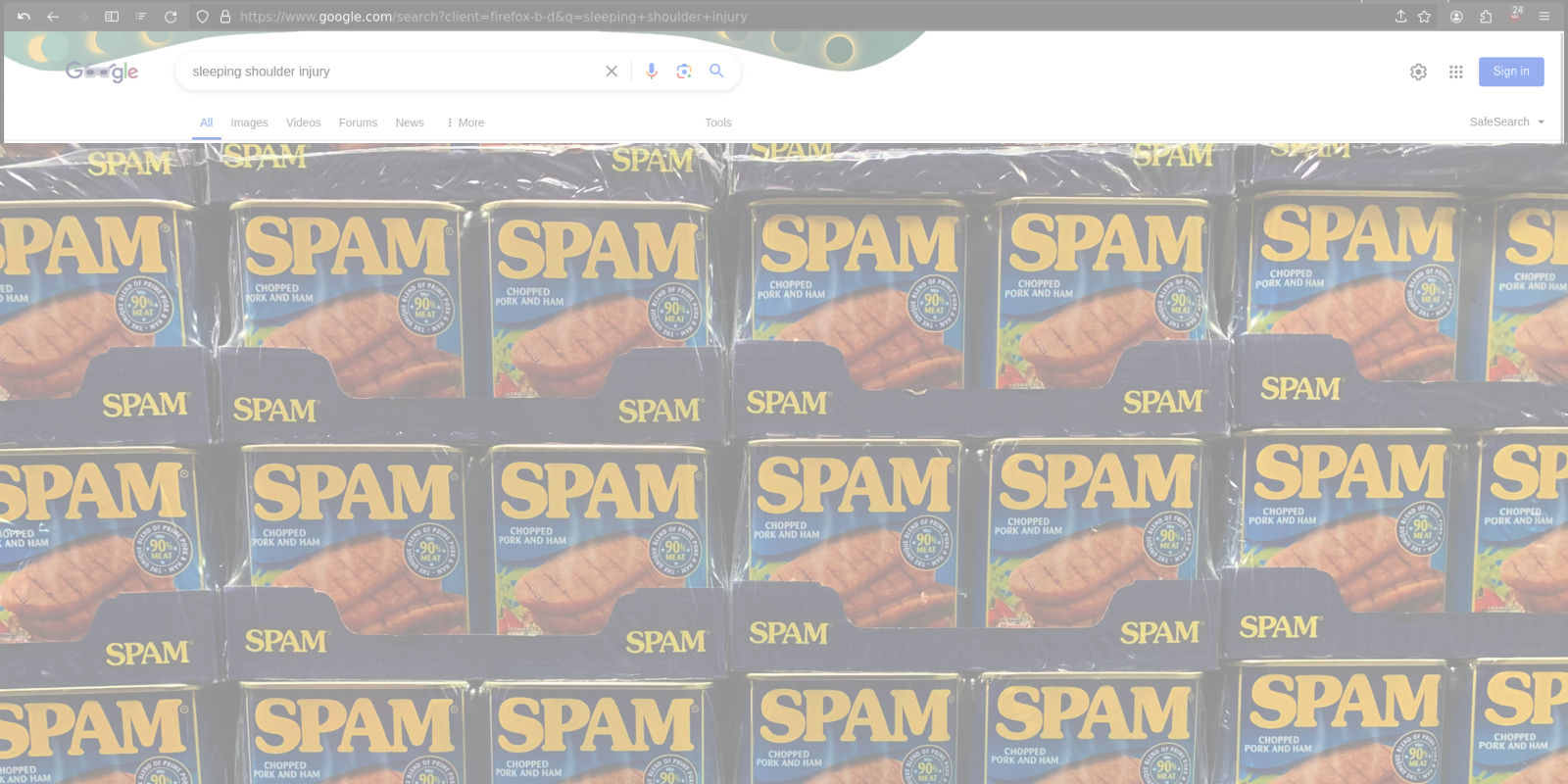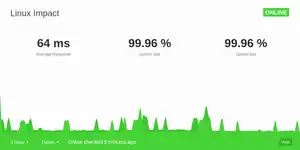
Banish search spam forever with uBlacklist!
For a company that shot to success on the back of an algorithm that made it easy for ordinary people to find what they need online, Google has done an extraordinary job of turning their search engine into hot garbage.
And make no mistake - Google utterly dominates search. Sure, we use DuckDuckGo, but this isn't because we think that the Bing-powered results are better, it's because we don't like the idea of a predatory info broker tracking our queries and building a profile on us.
But to say that Google has the best search results is like saying you've found the least stinky individual in a ninth-century French village. It's the best of a truly appalling bunch.
Why are search results so terrible?
Just as Google dominates search, it also dominates online advertising, and adverts from Google appear on the majority of pages across the web.
For websites to make money, they need eyeballs on their pages and on the adverts embedded therein.
This has led to a gamification of the system. Instead of writers writing things they think people will want to read, SEO teams from massive media and content companies will come up with list of queries they think people will be searching for. From this list, they'll generate article titles and subheadings, then pass these to writers to build an article around.
A lot of the time, the actual content doesn't matter. Sure, it's better if what's written is correct, but what matters most is to feature at or near the top of a search engine results page for specific and common queries. And then there are the affiliate link farms. Don't get us started on those...
It's not just media and content giants, either. Even small businesses want to be found online and will hire so-called SEO experts to create high-ranking content that points back to their business.
The end result of this is that searching for anything using any of the common search engines will result in pages of essentially identical, often worthless crud from the dark, Satanic SEO mills of the world.
How to get better search results from Google, Bing, DuckDuckGo, Yandex, and more...
Fortunately, it's often easy to recognise what's been written for SEO purposes and what hasn't. Search for anything medical-related, for instance, and you'll see almost identical page titles from healthline, WebMD, mayoclinic, MedicalNewsToday, and more. Oftentimes, the sites will actually be owned by the same parent company in an effort to eliminate competition.
The point is that it soon becomes obvious which sites you don't want results from. And there are easy-to-use browser extensions than help you exclude them from your search results page.
uBlacklist bans sites from your search results
That subheading isn't strictly true. It doesn't affect the results that search engines such as Google send back to you. It changes what results you see on the results page - stripping out results from sites you don't want.
On paper (or screen), this seems like a fabulous idea, and should, in theory, mean that you get less crud in your results, and more of what you're actually looking for.
Of course, having uBlacklist or any other extension active while using the web means that the extension can see everything you can do online. It probably isn't spying on you, but it's a risk you take.
How to Install uBlacklist in your favourite browser
If you're using any Chromium-based browser including Google Chrome, Microsoft Edge, or Arc, visit the Chrome extensions page of uBlacklist, then click the big blue "Add to Chrome" button, followed by "Add extension".
If you're Firefox is your memory-hogging weapon of choice, hit up the Mozilla add-ons page, click on the blue "Add to Firefox" button, then "Add".
The Firefox dialogue is a little more explicit and alarming than the Chrome "Add" button, and makes a point of warning you that uBlacklist will have permission to access your data on google.com and an epic 190 other sites. To be fair these are all Google sites, but the extension will ask permission to access other sites as you need them.
Choose whether to allow uBlacklist to run in private windows (somewhere we can envision it being especially useful), then click "Okay."
Use uBlacklist to block crap search results
The easiest way to use uBlacklist to exclude spam, useless, and otherwise parasitic websites from your search results is to simply run a search.
If you're using a search engine other than Google, you'll need to click on the extension icon from the search results page and allow it additional permissions to access your data for DuckDuckGo, Yandex, or your search engine of choice.
Now, below each search listing you'll see a new link: "Block this site."
Hit it, and you'll never be bothered by results from Mashable or Quora again.
This writer is suffering from a painful shoulder after buying some super-duper extra fluffy pillows. Could it be related? We didn't know, so hit up DDG for some answers with the query, "sleeping shoulder injury."
Thanks, Livestrong, for your list of six possible causes and lengthy explanations, but no. Goodbye, Cleveland Clinic - your advice is useless to us.
Adios to medicalnewstoday, and to the 3,000 word screed from healthyandnaturalworld.
What we're left with is high quality sources - most notably from the NHS, which should have been our primary source to start with.
Create your own search blacklists or use one pre-made
uBlacklist gives you extensive options to tailor your own blacklists to suit your needs, and you can create regex expressions to match particularly spammy domains or subdomains, ones where a certain keyword is part of the title, or even certain TLDs.
Alternatively, you can take advantage of the many pre-made blacklists which block the spammiest results from appearing in your SERP. You can find these pre-made blacklists at https://iorate.github.io/ublacklist/subscriptions.
To add a subscription to a blacklist, go to the extension settings, and click on "Add a subscription," then choose how often you want it to update from the master list.
Blacklists you can subscribe to include copycat sites, generative-ai related sites, all Pinterest websites, Chinese sites, and more.
While you're in the uBlacklist settings menu, you can also set up synchronisation across all your devices using a cloud service.
Not bad













